William J. Donovan, an American soldier who didn’t care about the medals that he would wear on the battlefield, that could make him an easy target of the enemy snipers. Considered as one tough stubborn soldier by many, Donovan would often refuse orders from his seniors to save his brother in arms leading dangerous rescue missions and head a number of campaigns.
There was a reason he earned so much respect and the title “Wild Bill” from not only his fellow soldiers but from his senior officers as well. “They can’t hit me and they won’t hit you!” he would say to his men on the battlefield.
After the first world war ended, Donovan was awarded the Medal Of Honor, the Distinguished Service Cross, The Distinguished Service Medal, the National Security Medal, to become the only person to have received all four of the United States’ highest awards. And to top it all he received the Silver Star and the Purple Heart as well.
You would be hard pushed to find an American soldier who was more decorated for his efforts in the war. But today he’s renowned more not from what he did on the battlefield, but for being considered the founding father of U.S. Intelligence, that later turned into the Central Intelligence Agency (CIA), and that’s why if you are lucky enough to visit the agency’s headquarters in Langley, you would see a statue of him.

There is no denying in the fact that the story of how William J. Donovan was able to form the OSS with initial help from James Bond’s author Commander Ian Fleming is far stretched to be considered interesting, but first let’s get to know the beginning of this man’s life.
The early life of Wild Bill Donovan
Bill was born in Buffalo, New York on the New Years’ day of 1883 to Anna Letitia and Timothy P. Donovan, both American born and their parents being Irish immigrants. His father was tough and emphasized to young Bill the importance of duty and keeping one’s honor, while his mother inculcated in him the importance of beauty and art.
His parents were strict Catholics and whilst growing up, Bill played with the idea of becoming a priest, but as time went by, the Catholic Dogma didn’t sit well in him.
Young Bill was keener on his education and later became a successful student at Columbia University. He was a campus football hero and was considered one of the most handsome students. After receiving a bachelor of arts, Donovan attended Columbia Law School where he would share a classroom at times with the President-to-be Franklin D. Roosevelt.
None of them knew that they would be becoming the main characters in the story of U.S. history and would also share the same plot-lines at times, playing an important part not only in each other’s life but also in the upcoming war nobody knew of.
After returning to his hometown, Buffalo, Bill opened his own law firm with one of his classmates and later played a part in forming a troop of cavalry what was called, New York National Guard. This was the time, Donovan passionately devoted much of his time to military strategy.
With the kind of mind Donovan had, he leads to the path to becoming one hell of a solider, and also an apex kind of leader.
Donovan’s Military Career
He became entrenched in military matters, leading efforts on the U.S. – Mexican border in the fight against the Mexican revolutionary by the name “Pancho Villa“. Donovan was leading the same cavalry unit that he formed 4 years ago, the New York National Guard at the time.
A year later in 1917, he was promoted as a Major and led the 1st battalion, 165th Infantry of the 42nd division also known as the “Rainbow Division”. He might have been on the older side compared to the young men that fought with him, but his endurance and fearlessness would become legendary. He fought in many battles to come and witnessed utter carnage, whilst receiving grave injuries to himself.

It was the great losses of men and pools of blood that played a part in the evolution of Donovan’s thinking. He realized that to win wars, one would need to outsmart the enemy, and military intelligence is key to that.
During World War I, he was offered the Croix de Guerre, but he refused to accept it after one of his fellow soldiers wasn’t awarded the same honor despite being a part of the rescue mission that he carried. After the officials realized their mistake, Donovan accepted the medal.
After returning from the war, he took vacations with his wife, mainly on being on an intelligence mission to countries like Japan, Korea, and China, and at one point he went alone to Siberia.
In the ensuing years, he would be awarded the Medal Of Honor for his heroic actions during the war and it was no surprise that about 4,000 veterans showed up to Donovan’s ceremony in New York. But soon everyone was shocked when Donovan refused to keep it stating that it truthfully belonged not to him but “to the boys who are not here, the boys who are resting under the white crosses in France or in the cemeteries of New York, also to the boys who were lucky enough to come through.“
Donovan’s Career as a U.S. Attorney
In the 1920s, Donovan became the U.S. Attorney for the Western District of New York. He might have been popular among soldiers, but when took very seriously his part in the war on alcohol, he gained a few detractors and became famous. This was the era of prohibition in the USA and he made sure the law was strictly enforced. Donovan was way more deterred even when there were a number of threats to his life, with some even planning to dynamite his house.
Donovan was now well known between New York’s riches, as he raided their clubs too. The wealthy hoped to be immune to the law, but Donovan made sure it didn’t happen while he is the attorney.
The club owners, who were mostly rich were outraged and some even regarded Donovan as a traitor to their class, since he was married into the world of privileged.
But none of those could put Donovan down, instead, he gained a reputation for fighting corruption that later got him a position in Department of Justice as an assistant to Attorney General, after many officials were found to be corrupt and involved in a scandal.
After acquiring his position, the first step Donovan took was to hire more women and he let it known that he didn’t much like the staff that didn’t question the authority. But with such responsibilities came more attention, especially in the eyes of people who would want to take him down, or at least would try to.
This time it was Federal Bureau of Investigation’s (FBI) director, J. Edgar Hoover, who became embroiled in a fight against Donovan.
Donovan was smart, popular, handsome, and well-liked, unlike Hoover who was full of insecurities and as one might say, a strange and petty man at times. The relationship got worse as Donovan was moved into intelligence and Hoover himself was spying on anyone who he took a dislike to, a small internal war broke out between the two man.
But first, the second world war had to happen and on the lead up to that, Donovan had been hired to visit parts of Europe to collect intelligence there. For the purpose, he had to build trust among the Brits and he did the same, he started making close relationships with British spies and some high ups in government without being caught. He visited Nazi Germany, Fascist Italy, and traveled extensively meeting heads of government in other countries, in short, he was successful in collecting vital intelligence that could play in favor of his nation.
Returning from his travel, one thing he was sure was that the war was inevitable, and obviously he was right.
Franklin D. Roosevelt and Donovan
Returning to his post in U.S., his experience and intelligence he gathered helped him to get much attention from President Franklin D. Roosevelt, in no time their friendship was known inside the white house and between other important officials, even though both men had been on opposite sides of the political spectrum.
Not only that but Donovan was now considered an important ally and adviser from Roosevelt himself as he believed that Donovan could have been elected as President if he had been a democrat and if Hoover had not done Donovan wrong on the Attorney General appointment. Another important part played in Donovan’s popularity was Warner Brothers, which produced a film name The Fighting 69th, in which George Brent played as Donovan.
When Nazi Germany at the war just blitzed anyone who stood in its way, both Roosevelt and British leader Winston Churchill were agreed on one thing, and that was that Germany was more powerful than anyone had expected.
Germany war tactics and very effective propaganda was without a question a force to be reckoned with, so it was obvious that Roosevelt chose Donovan to send to Britain in order to have a talk to Churchill about the situation.
Donovan now on another mission outside his nation talked to a number of leaders and British intelligence and was even invited to have lunch with King George VI. Churchill was of course with his military background and love of legend got along very well with Wild Bill, and the two men famously got along. Well, it also helped Donovan to get access to some of the top-secret information from Churchill.
Bill went back to the USA and informed the President that Britain had what it took to fight the Germans but the USA need to get back in on the act. He also told Roosevelt that the US needs an agency much like Britain’s intelligence services.
Forming the OSS – “Oh So Social” ?
No, this wasn’t any social group, but in fact, the first secret service of the USA, and this clearly wasn’t the actual name of the secret service. There were so many aristocrats initially recruited in the agency that the joke went around that OSS stood for “Oh So Social”. OSS was short for the Office of Strategic Services.
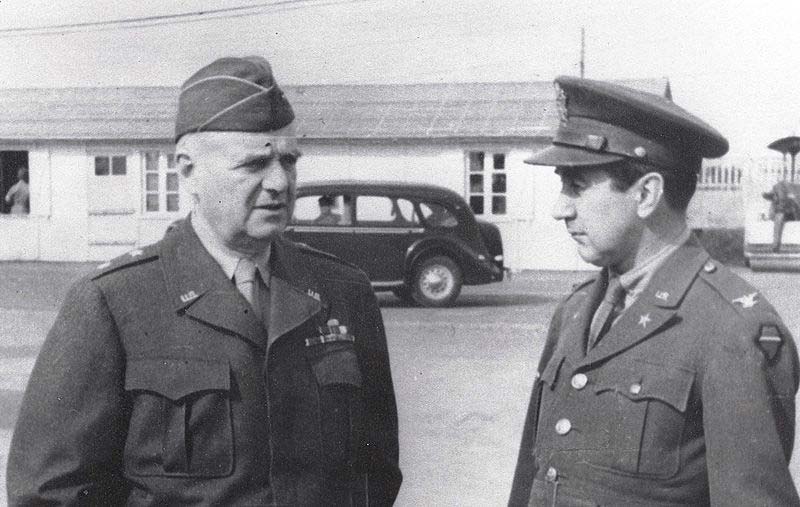
Long before the CIA, there was the British Secret Service Bureau and the branches we all know as MI5 and MI6. In fact, the British Intelligence really goes back centuries, but the modern bureau impressed Wild Bill.
It was during this time that he spent a lot of time working with these secretive British agencies and with some spies who belonged to them. He spent a significant amount of time studying the British Intelligence reports, charts, and being trained by various personnel and spies.
Donovan had only one aim, and that was to create an all American version of what the British already had, and that’s exactly what he did. One British agent who helped Donovan form the blueprint for his goal was none other than Commander Ian Fleming, the author of the James Bond Novels.
The two men also would go on work with each other on certain sabotage operations. The U.S. Army, Navy, FBI, as well as the State Department, all had their own intelligence units. But none of these were organized, and Donovan knew that an organization is required that had to be bigger and better.
Roosevelt was also aware of the situation and in 1941, he appointed William Donovan as the head of the Coordinator of Information (COI) which would soon get a name change and become the Office Of Strategic Services, in short, OSS.
OSS didn’t receive much appreciation from the other government officials and deparments such as the military and agencies that sought this new outfit as a threat to them. They didn’t think there was any requirement for any entity that was in some ways above them.
What happened was a kind of turf war, but the OSS went through strength to strength and soon Donovan was training new recruits. He devised all kinds of strategies to spy and to attack, on a new kind of warfare. He hired folks from all walks of life that one cannot imagine, including intellectuals to creatives to criminals. He also got on board some businessmen, and even actors and poets who could sway the minds of the public. Overall, OSS included all kind of people who no one can suspect being a part of such agency.
Donovan had famous psychiatrists working for him who analyzed enemies and he had some of the USAs wealthiest people working in certain ways for the OSS.
It was a force unto itself and like nothing else the U.S. had seen before. Though it was obvious that the rising power of the OSS wasn’t that could go unnoticed by other nations. British Intelligence was now very much attentive and become weary of it, as Donovan’s team mounted espionage and sabotage operations all over the world.
OSS had now its presence known and established its popularity in various parts of the British empire and MI6 wasn’t kind of happy on having U.S. secret agents playing chess moves on their turf.
But there wasn’t a total appreciation that OSS received within its own nation, there were critics, and at some time the media tried to frame OSS as an American Gestapo (Nazi State Secret Police), which obviously wasn’t what OSS was, and this formed a fear that American citizens would be suffering in hands of the OSS agents.
They believed that Nazi-style propaganda would pervade the USA, and parts of military feared that a super spy agency might get out of control and have too much power, even on the military. Then there;s the famous spat with the FBI director, Hoover of course, who had his own dossier of information pertaining to the wrongdoings of Wild Bill.
The information that Hoover gathered over time on Donovan was vital and was enough to defame him. The dossier included Donovan’s womanizing and some sketchy ties to British intelligence. Wild Bill Donovan was reckless, according to Hoover. But OSS wasn’t lacking behind gathering information, and at some point had a dossier on Hoover too, which included information about his alleged sexual orientation, which of course was considered bizarre at the time.
Although Hoover decided to go ahead, and what were called “poison-pen memos” were sent to Roosevelt about shady methods employed by Donovan. The aim was nothing more but to bring him down, since Donovan was considered as a lot of trouble to many, including Hoover.
But being an old friend to Donovan, Hoover’s strategy to paint him as a villain didn’t work on Roosevelt who believed in him and was impressed by his experience and intelligence.
As the time went by, people feared more of what now known as the American Gestapo, some of which was flamed by Hoover of course. The OSS had its good times, and also the times of failure, some of which were fueled by the media. Then in 1945, Donovan penned a secret proposal to approve an even bigger spy agency and it sounded much like a secret police.
Now having an Gestapo image already, and this letter getting leaked only caused more trouble to the image of OSS and also Donovan’s. Donovan obviously suspected Hoover for the leak of information, as there was no one he could know to have such power and inside information.
Donovan knew Hoover wanted to be America’s top spy czar, but the thing is though, that Bill’s own attempt to become one of the most powerful men in American had failed when he lost a lot of powerful friends. And then came the day when he lost his most powerful ally, Franklin D. Roosevelt died at age of 63. This was the only time Donovan found himself in trouble.
When the next president Harry S. Truman took his position at the White House, the OSS was still suffering from negative criticism due to some people still trying to take it down, claiming its Gestapo like operations to be ongoing in the USA, which of course was not true in any form.
At some point, some of the high position holders in the government said OSS to be too close to British Intelligence, and so basically allowed British spies some control in the USA.
So many efforts were put in to take down OSS and Donovan from many powerful people, but this tough soldier wouldn’t let his hard build agency went down so easily. Donovan now played a great role in the Nuremberg Trials held after World War II by the Allied forces under international law and the laws of war. He helped bring war criminals to justice, and also an attention from Truman when he awarded him the Distinguished Service Medal in 1946.
The CIA
Not long after that, Truman realized the need for a Central Intelligence agency, and finally penned down an approval in 1947 along with the lines Donovan had proposed. It was obvious that Donovan wanted to be as the head of the new department.
Many members of the former OSS would become part of this new agency, including William Casey, Allen Dulles, and William Colby, but Donovan would never sit in the hot seat. He was always there behind the scenes and thought he might be made the head of the CIA, but it never happened.
Instead, Truman gave this opportunity to Admiral Roscoe Hillenkoetter. Now, one might thought Donovan to be furious on President’s decision as everyone was aware of his hard work behind OSS, but Donovan on the other hand took this decision very well, in fact so well that he was making efforts behind the scenes to aid the formation of CIA, and also had accepted Truman’s appointment to head a committee studying the fire departments.
In 1952, Donovan helped Eisenhower who had became his good friend since the war, during his presidential campaigns to support him, and he eventually won. Donovan hoped that Eisenhower would name him as the head of the CIA, but he was again put down, and Allen Dulles was appointed as the head.

In 1953, Donovan was offered to be the Ambassador to Thailand which he accepted because he was aware of how important the country was during the Cold war since it was next to Vietnam and the spread of communism in South East Asia was feared by the US. The other thing that Donovan could get relieved of was working under John Foster Dulles, brother of Allen Dulles, whom Donovan had very little respect for.
The End of Wild Bill’s Legacy
The freater food of course would sometimes mean supporting oppressive dictators who took a zero tolerance approach to activism, and this is why Wild Bill’s legacy will always have its critics.
In 1957, while in hospital in Thailand, Donovan;s dementia got the better of him, Vanity Fair wrote that his last days were sad and his mental state was not good at all. The report said about the Wild Bill with dementia, he imagined and saw the Red Army coming over the 59th Street bridge, into Manhattan, and in one memorable last mission, fled the hospital, wandering down the street in his pajamas.
William J. Donovan may not have received the attention he deserved in his final moments, but his efforts for his nation will always be recalled, never to be forgotten from the pages of USA’s history.
Nothing is impossible, he doesn’t seem to know the meaning of the word. It was typical of Wild Bill to stand like a rock in the face of enemy fire, and yell to his men: “They can’t hit me, so they can’t hit you either. Let’s go”!
An excerpt from article in Readers Digest of October 1947
Now that you have read about “Wild Bill” Donovan, you might also like reading about this Finnish Farmer Who Became the Deadliest Sniper in History, called the White Death.



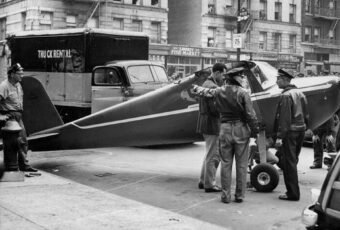
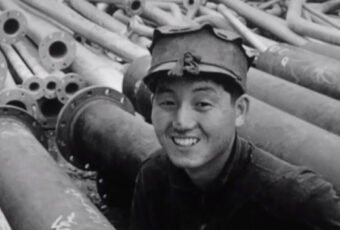
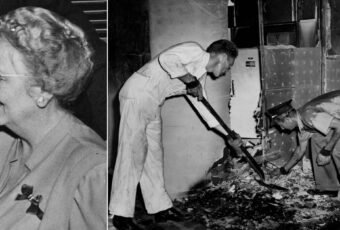

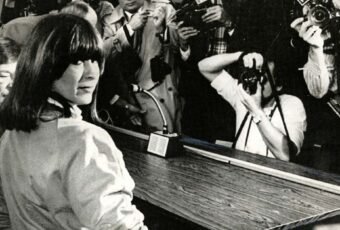

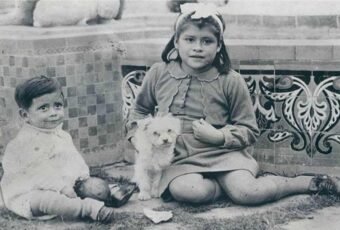

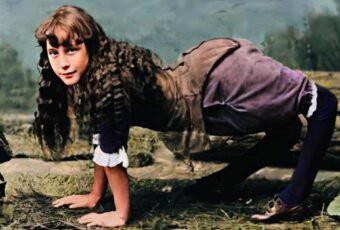
Follow Us